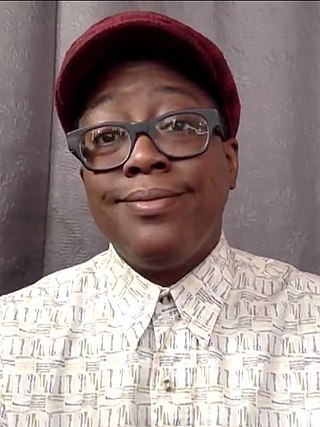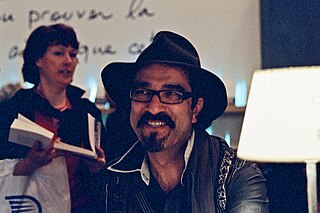Related Research Articles

Susan Meiselas is an American documentary photographer. She has been associated with Magnum Photos since 1976 and been a full member since 1980. Currently she is the President of the Magnum Foundation. She is best known for her 1970s photographs of war-torn Nicaragua and American carnival strippers.

Richard Leacock was a British-born documentary film director and one of the pioneers of direct cinema and cinéma vérité.

Sooni Taraporevala is an Indian screenwriter, photographer, and filmmaker who is the screenwriter of Mississippi Masala, The Namesake and Oscar-nominated Salaam Bombay!, all directed by Mira Nair. She also adapted Rohinton Mistry's novel Such A Long Journey and wrote the films Dr. Babasaheb Ambedkar, her directorial debut Little Zizou, and Yeh Ballet, a Netflix original film that she wrote and directed.

Barbara Jean Hammer was an American feminist film director, producer, writer, and cinematographer. She is known for being one of the pioneers of the lesbian film genre, and her career spanned over 50 years. Hammer is known for having created experimental films dealing with women's issues such as gender roles, lesbian relationships, coping with aging, and family life. She resided in New York City and Kerhonkson, New York, and taught each summer at the European Graduate School.

Gwendolyn Audrey Foster is an experimental filmmaker, artist and author. She is Willa Cather Professor Emerita in Film Studies. Her work has focused on gender, race, ecofeminism, queer sexuality, eco-theory, and class studies. From 1999 through the end of 2014, she was co-editor along with Wheeler Winston Dixon of the Quarterly Review of Film and Video. In 2016, she was named Willa Cather Endowed Professor of English at the University of Nebraska at Lincoln and took early retirement in 2020.

Werner Schroeter was a German film director, screenwriter, and opera director known for his stylistic excess. Schroeter was cited by Rainer Werner Fassbinder as an influence both on his own work and on German cinema at large.
Joy Amina Garnett is an artist and writer from New York, United States. Trained as a painter, her artwork explores contemporary practices around cultural preservation, alternative histories and archives. Her interdisciplinary work combines creative writing, research and visual media. In her early paintings (1997–2009), Garnett engaged issues around contemporary consumption of media and the distinctions between documentary, technical, and artistic image making. Her mature work draws on archival images, alternative histories and the legacy of her maternal grandfather, the Egyptian Romantic poet, bee scientist and polymath Ahmed Zaki Abu Shadi. Garnett is married to conceptual photographer and video artist Bill Jones.

Cheryl Dunye is a Liberian-American film director, producer, screenwriter, editor and actress. Dunye's work often concerns themes of race, sexuality, and gender, particularly issues relating to black lesbians. She is known as the first out black lesbian to ever direct a feature film with her 1996 film The Watermelon Woman. She runs the production company Jingletown Films based in Oakland, California.
Su Friedrich is an American avant-garde film director, producer, writer, and cinematographer. She has been a leading figure in avant-garde filmmaking and a pivotal force in the establishment of Queer Cinema.

Jesse Lerner is a filmmaker and writer based in Los Angeles. His documentaries include Frontierland, about the Latino experience in the United States; Ruins, The Atomic Sublime, The Absent Stone and The American Egypt.
Paule Baillargeon is a Canadian actress and film director. She won the Genie Award for Best Supporting Actress for her role in the film I've Heard the Mermaids Singing, and was a nominee for Best Director for The Sex of the Stars . Her film roles have included August 32nd on Earth , Jesus of Montreal , A Woman in Transit , Réjeanne Padovani and Days of Darkness .

Atiq Rahimi is a French-Afghan writer and filmmaker.
Richard M. Elman was an American novelist, poet, journalist, and teacher. He was born in Brooklyn, New York. His parents were Yiddish-speaking and came to the United States at the turn of the 20th century from Russo-Poland. His boyhood is captured in his comic novel Fredi & Shirl & The Kids: An Autobiography In Fables.

Dominique Cabrera is a French film director. She has taught filmmaking at La Fémis and at Harvard University. Her film Nadia et les hippopotames was screened in the Un Certain Regard section at the 1999 Cannes Film Festival. Additionally, her work has screened in the Berlinale, the Toronto International Film Festival, the Vienna International Film Festival, the Locarno Film Festival, the Rotterdam Film Festival, and in the New York Film Festival, among others.

Joseph Leo Koerner is an American art historian and filmmaker. He is the Victor S. Thomas Professor of the History of Art and Architecture and Professor of Germanic Languages and Literatures at Harvard University. Since 2008 he has also been Senior Fellow at the Harvard's Society of Fellows.
Kurt Stallmann is an American composer who lives and works in Houston, Texas.

Tony Asimakopoulos is a Canadian film and television director based in Montreal. He often collaborates with the Montreal-based Canadian film production company EyeSteelFilm. He is best known for his autobiographical documentary Fortunate Son.
Marion "Muffie" Meyer is an American director, whose productions include documentaries, theatrical features, television series and children’s films. Films that she directed are the recipients of two Emmy Awards, CINE Golden Eagles, the Japan Prize, Christopher Awards, the Freddie Award, the Columbia-DuPont, and the Peabody Awards. Her work has been selected for festivals in Japan, Greece, London, Edinburgh, Cannes, Toronto, Chicago and New York, and she has been twice nominated by the Directors Guild of America.

Hamid Naficy is an Iranian-born American filmmaker, writer, scholar, and educator. He is the Hamad Bin Khalifa Al-Thani Professor in Communication at Northwestern University in the department of Radio/Film/Television, an affiliate faculty member in the Department of Art History, and a core member of the Middle East and North African Studies Program.
References
- ↑ "VES Faculty" . Retrieved 23 June 2011.
- ↑ "Family Portrait Sittings". Archived from the original on 2012-07-12. Retrieved 23 June 2011.
- ↑ "Scenes from Childhood". Archived from the original on 5 October 2011. Retrieved 23 June 2011.
- ↑ "Living at Risk: the Story of a Nicaraguan Family". Archived from the original on 17 July 2010. Retrieved 23 June 2011.
- ↑ "Pictures from a Revolution" . Retrieved 23 June 2011.
- ↑ "Seed and Earth" . Retrieved 23 June 2011.
- ↑ "Khalfan and Zanzibar" . Retrieved 23 June 2011.
- ↑ "Down from the Mountains". Archived from the original on 2012-07-19. Retrieved 23 June 2011.